
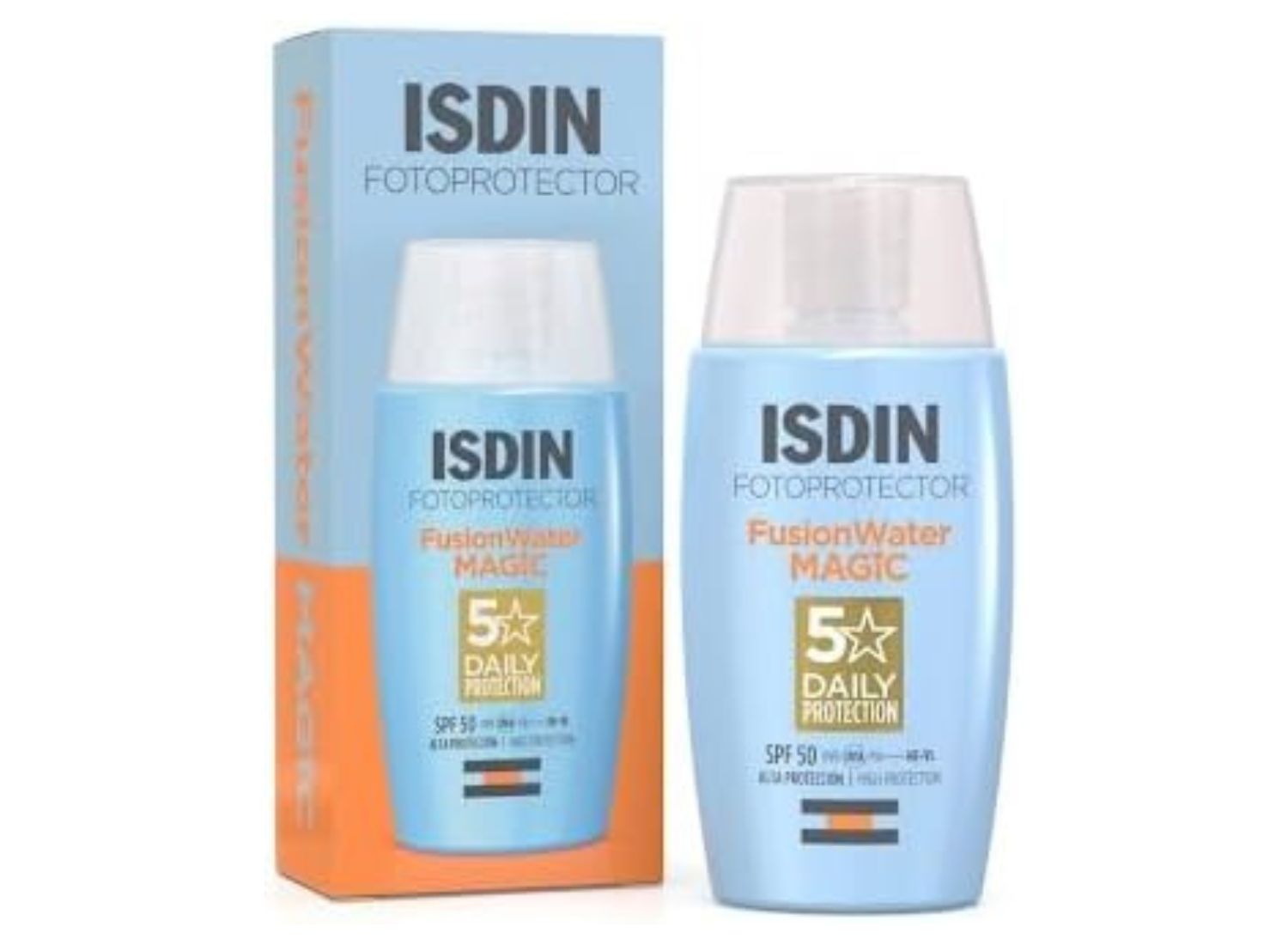
The ISDIN Fusion Water Face Sunscreen offers intense hydration and immediate absorption. Specifically designed for atopic skin, this oil-free sunscreen is gentle. It won’t sting your eyes thanks to its intentional formula. It provides high UV protection, which has been clinically tested under laboratory conditions and real high solar radiation scenarios.
With an ultralight texture that absorbs instantly, this face sunscreen does not leave any residue behind. Plus, it is suitable for all skin types. It can be applied to wet skin, making it convenient for outdoor activities. The formula is also sea-friendly, containing mostly biodegradable and inorganic ingredients. It offers a combination of intense hydration, high UV protection, and immediate absorption, making it an excellent choice for daily use. Thanks to its oil-free and non-stinging properties, this face sunscreen is at the top of our list.
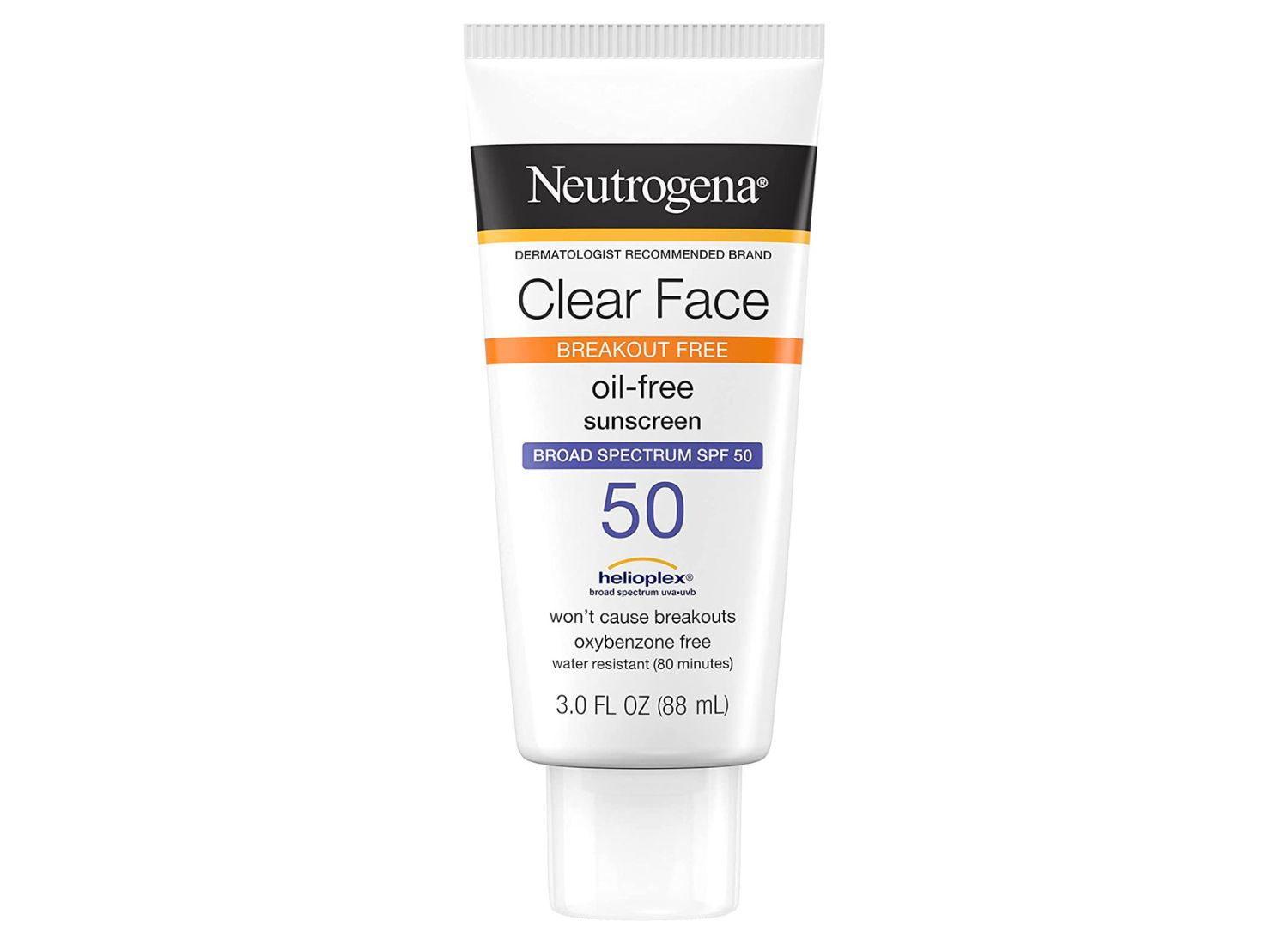
Protect and nourish your acne-prone skin with Neutrogena Clear Face Sunscreen. This dermatologist-recommended facial sunscreen comes in a convenient bottle. It provides broad spectrum SPF 50 for UVA and UVB protection. Powered by Helioplex technology and free from oxybenzone, it also offers superior defense against harmful sun rays.
With its water-light texture, this sunscreen lotion absorbs quickly. It leaves a weightless and matte finish that lets your skin breathe as well. Plus, it is oil-free, non-comedogenic, and dermatologist-tested. That way, you can ensure that it won’t clog your pores or cause any breakouts. The fragrance-free formula is also water-resistant for up to 80 minutes, making it perfect for outdoor activities.
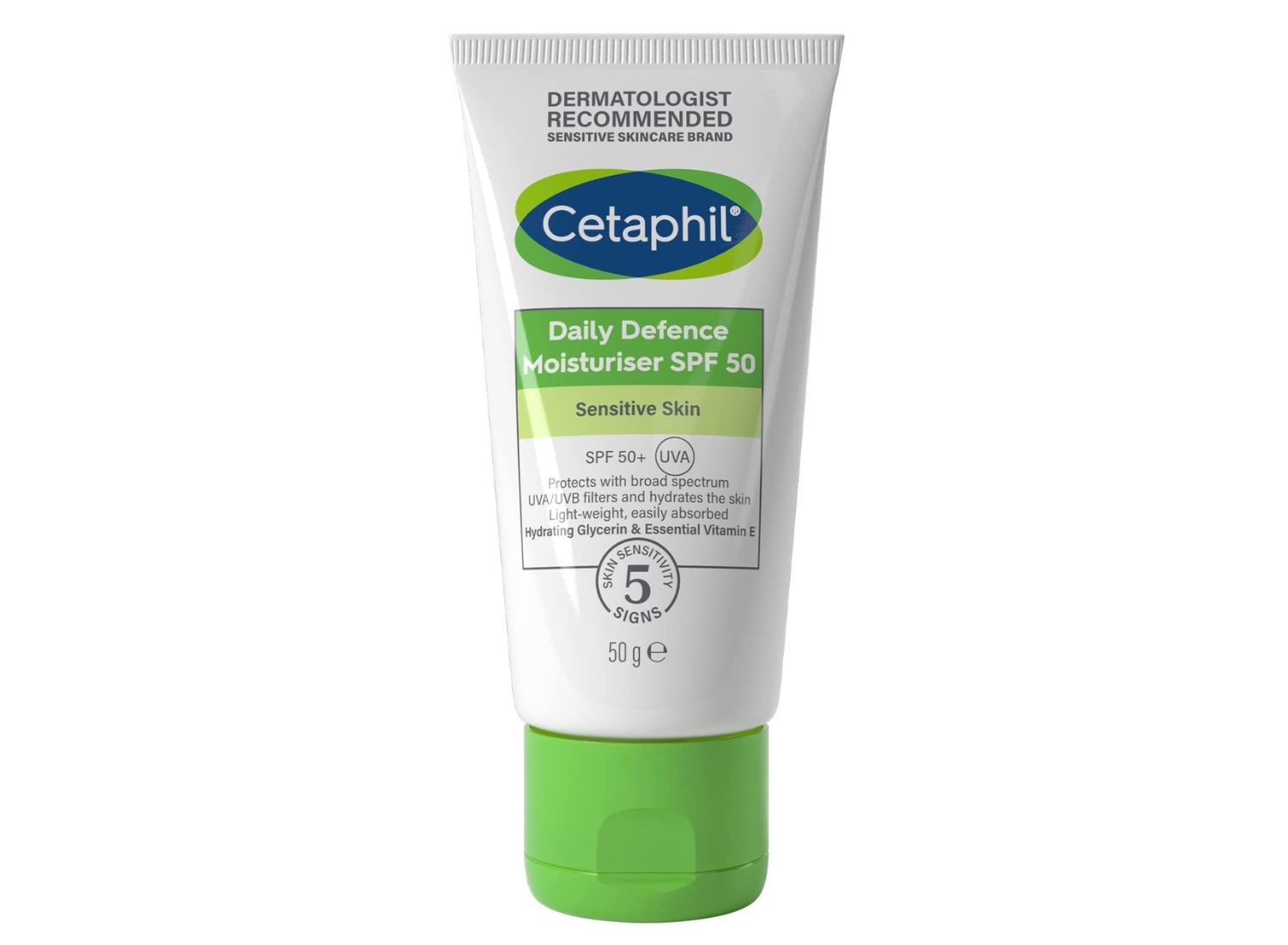
Experience the ultimate 2-in-1 solution with Cetaphil Daily Defence Face Sunscreen. This versatile moisturizer is designed for all skin types, providing deep hydration while offering exceptional broad-spectrum UVA/UVB protection with SPF 50. Its lightweight and easily-absorbed formula nourishes the skin.
Plus, this face sunscreen helps maintain the skin’s natural protective barrier. Enriched with the goodness of glycerin and vitamin E, this face sunscreen delivers effective hydration and promotes healthy-looking skin. It is specifically developed for even the most sensitive skin. With its non-comedogenic and fragrance-free formula that is both gentle and non-irritating, you can ensure that this face sunscreen won’t clog your pores.
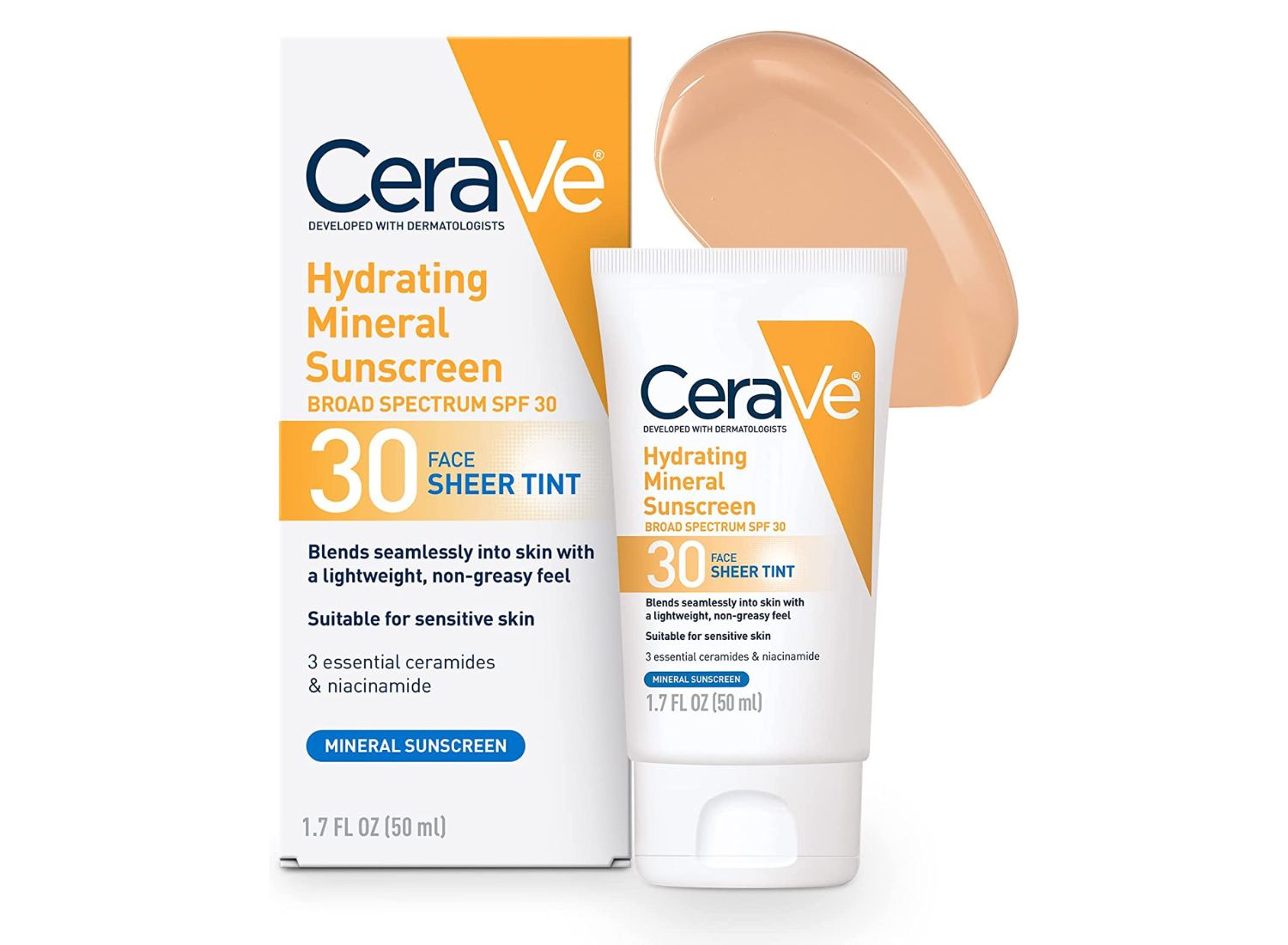
The CeraVe Face Sunscreen is a game-changer when it comes to sun protection. It offers a translucent tint that suits all skin tones. From there, it leaves a radiant, healthy glow behind while eliminating the dreaded white cast often associated with mineral sun creams. With its wide spectrum UV protection, this face sunscreen reflects UVA and UVB rays, ensuring your skin stays shielded from harmful sun damage.
But it doesn’t stop there. This remarkable formula is enriched with three essential ceramides that work harmoniously to restore your skin’s natural barrier while locking in moisture. Say goodbye to dryness and hello to a revitalized complexion with this face sunscreen. This tinted face sunscreen has an SPF of 30. It also boasts a safe and gentle formula that is free from oxygen, parabens, fragrances, and chemical filters. Its versatility is impressive.
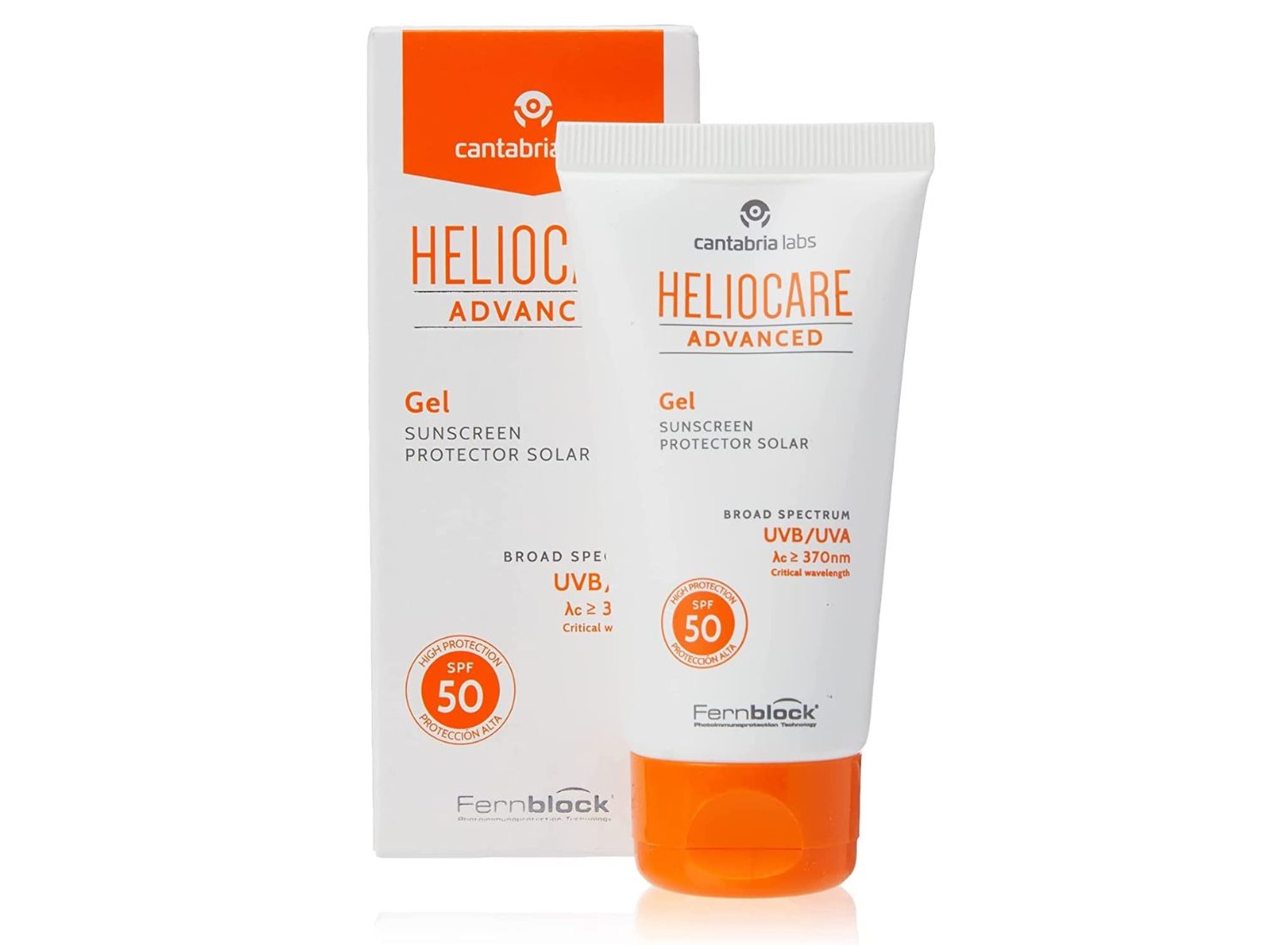
Want to experience the ultimate defense against premature skin aging? Try the Heliocare Advanced Gel Face Sunscreen. This lightweight gel sunscreen for the face can provide you with a high level of SPF 50 protection. It can safeguard your skin from the harmful effects of UVA and UVB rays alike. It also defends against free radicals and DNA damage thanks to its powerful concentration of antioxidants.
Promoting overall skin health, this unique formulation features DNA repair enzymes. They help protect and repair the cells in your skin. Plus, with daily use, you can not only achieve beautiful skin but maintain it is possible, too. That way, your skin will be both protected and rejuvenated. The quick-absorbing, non-greasy finish ensures no white residue is left behind, which will result in your skin feeling beautifully matte. Formulated as water-resistant and non-comedogenic, this vegan sunscreen is also cruelty-free.
Face sunscreen is an essential part of any skincare routine. It offers vital protection against the harmful effects of the sun’s rays. But with such a wide range of options on the market, choosing the right face sunscreen can be overwhelming. In this buyer’s guide, we will delve into every aspect of the purchasing process. We want to equip you with the knowledge you need to select a face sunscreen that suits your skin type and your lifestyle.
Chemical sunscreens work by absorbing the sun’s rays and converting them into heat energy. They often contain ingredients like oxybenzone or avobenzone. On the other hand, physical sunscreens, also known as mineral sunscreens, create a protective barrier on the skin’s surface. From there, it reflects and scatters the sun’s rays. These sunscreens typically contain zinc oxide or titanium dioxide. Combination sunscreens, as the name suggests, combine both chemical and physical sunscreen ingredients. That way, they can provide broad-spectrum protection.
Look for a face sunscreen with a suitable SPF level. Experts generally recommend SPF 30 or higher for adequate protection against UVB rays.
Ensure that the face sunscreen you’re thinking about buying can provide you with total broad-spectrum protection. This means it will shield against both UVA and UVB rays. You can utilize this type of sunscreen to prevent sun damage, lower the risks of premature aging, and reduce your chances of developing skin cancer.
Consider your skin type when choosing a face sunscreen. Opt for oil-free, non-comedogenic formulas if you have oily or acne-prone skin. For dry or sensitive skin, seek out moisturizing ingredients or products labeled as gentle.
Check the list of ingredients and look for any potential allergens or irritants that may cause skin-related reactions. If you have any known allergies or sensitivities, choose a face sunscreen that is hypoallergenic or suitable for sensitive skin.
If you anticipate being exposed to water or sweat, consider a water-resistant or waterproof face sunscreen. These formulas provide longer-lasting protection. As such, they are ideal for outdoor activities, like practicing tennis, playing beach volleyball, or swimming.
Consider the texture and application method that will suit your preferences the most. Face sunscreens are available in various forms, such as lotions, creams, gels, or sprays. Choose a texture that feels comfortable on your skin. Make sure the application method is convenient for your lifestyle as well.
Start by cleansing your face thoroughly. Make sure your skin is dry before you apply the face sunscreen. From there, take a sufficient amount of face sunscreen and apply it evenly to all of your exposed areas, including the face, neck, and ears. Don’t forget areas that people often overlook, like the hairline, scalp, and back of the neck when your hair is pulled up. Be sure to follow the recommended application suggestions printed on the packaging of the product. This can help ensure that you’re achieving the desired level of protection. Reapply your face sunscreen every two hours if not more frequently in situations where you are sweating heavily or swimming. Remember, even water-resistant or waterproof sunscreens need to be reapplied after a certain period to maintain their effectiveness.
Sunscreen helps prevent sunburns, reduces the risk of skin cancer, and slows down premature aging caused by sun damage. This can include wrinkles, fine lines, and age spots. Regular use of face sunscreen also contributes to an even skin tone by preventing the development of dark spots and hyperpigmentation caused by sun exposure. It acts as a barrier against environmental aggressors and helps maintain the skin’s natural moisture balance. In turn, it lowers dryness and dehydration. A face sunscreen can enhance the effectiveness of other skincare products. Plus, sunscreen creates a protective layer that prevents active ingredients from being broken down by UV rays. Overall, it allows them to work more efficiently. You can enjoy the long-term benefits of healthy, youthful-looking skin as well as the peace of mind of knowing you’re taking proactive steps to protect your skin.
A: Face sunscreen is crucial for protecting your skin from the harmful effects of the sun's ultraviolet (UV) rays. UV radiation can lead to sunburns, premature aging, and an increased risk of skin cancer. But by applying face sunscreen daily, you can create a barrier that will shield your skin from those damaging rays. In turn, this can help you maintain your health as well as your youthful appearance.
A: UVA and UVB rays are two types of UV radiation emitted by the sun. UVA rays penetrate deeper into the skin. They are primarily responsible for premature aging, including wrinkles and age spots. UVB rays, on the other hand, are shorter. They are the rays that primarily cause sunburns. Both types of rays can contribute to skin damage and increase the risk of skin cancer. It's important to choose a face sunscreen that provides broad-spectrum protection. That’s because it shields against both UVA and UVB rays.
A: To maintain optimal protection, it's recommended to apply face sunscreen every two hours. You might need to apply face sunscreen more frequently if you're sweating heavily or in the water swimming. Even if sunscreen is labeled as water-resistant, it can still wear off over time. The reapplication of face sunscreen can ensure that your skin is shielded from the sun's harmful rays all day long.
A: While body sunscreens can provide some level of protection, they are not specifically formulated for the delicate nature of the skin on your face. Facial skin tends to be more sensitive and prone to breakouts. So, using a sunscreen that is specifically designed for the face is ideal. Face sunscreens are often lighter in texture, non-comedogenic, and less likely to cause irritation or breakouts.
A: Yes, you can wear makeup over face sunscreen. It's recommended that you apply face sunscreen as the first step in your skincare routine. Then, follow up by applying your makeup. Allow the sunscreen to fully absorb into your skin before applying any cosmetics. Look for sunscreen formulas that are compatible with makeup and won't cause your makeup to pill or slide off.